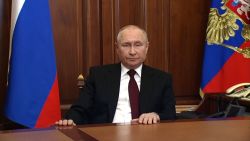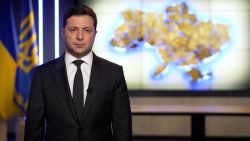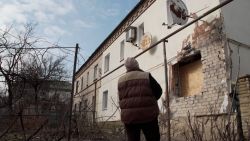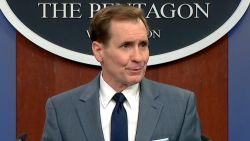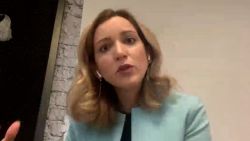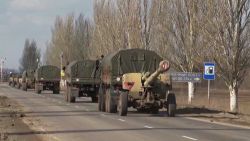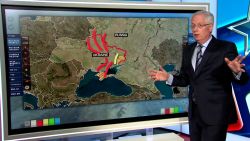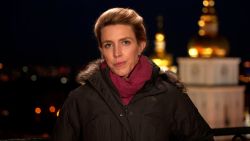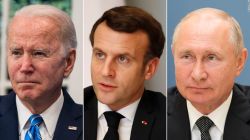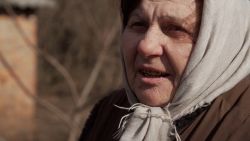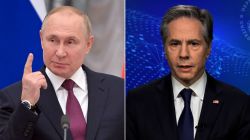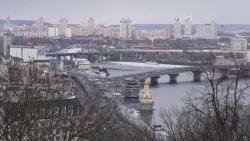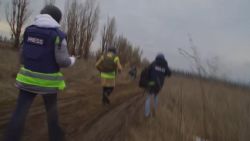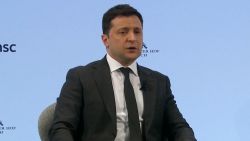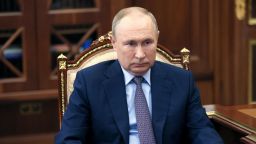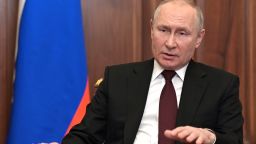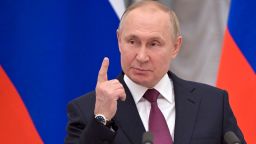Editor’s Note: David A. Andelman is a CNN contributor and two-time winner of the Deadline Club Award. He is a chevalier of the French Legion of Honor and author of “A Red Line in the Sand: Diplomacy, Strategy, and the History of Wars That Might Still Happen” and the Substack blog Andelman Unleashed. He was formerly a correspondent for The New York Times and CBS News in Europe and Asia. The views expressed in this commentary belong solely to the author. View more opinion on CNN.
Vladimir Putin fancies himself a historian, or certainly a historical figure – one destined to rewrite or restore history in his own image. Now, with the might of the Russian military machine behind him, he has begun what could turn into as bloody a rampage as any in Russia’s historical past.
Monday night, on the cusp of declaring portions of Ukraine as stand-alone “people’s republics,” he embarked on a rambling, distorted and utterly chilling hour-long rewrite of Russian and Soviet history in a televised speech to his nation.
Above all, it is a frightening insight into the deep thinking of the path Putin would like to follow. It should send chills across the Baltic states through the Stans and beyond – all once republics of the Soviet Union, amalgamated at gunpoint from the time of the Russian Revolution to the end of World War II. Putin seems to believe it is his mission to recreate the old Soviet Union. And apparently, he intends to start with Ukraine.
If one were to take his speech (translated here by the Kremlin) at face value, it would hardly be surprising that he has done so. Built on fantasy and fabrication, Putin’s address manufactured a succession of events that bear little resemblance to the real, rich history of a powerful, independent Ukraine that for centuries dwarfed an independent Russia in importance, even size.
The independent Kievan Rus dates back a thousand years, when the Grand Prince of Kiev, Vladimir the Great, married into the powerful Byzantine Empire, Christianizing his nation and expanding its boundaries to make it the largest in Europe – more than 800,000 square kilometers, or four times the size of France, and including vast stretches of Russia and Poland.
At its peak in the early 1200s, Kyiv’s population of 100,000 was among the world’s largest cities. Putin’s claim that “before the 17th century, a portion of this territory rejoined the Russian state,” is equally fictitious since for much of this period, it was actually controlled by the Polish-Lithuanian Commonwealth and was repeatedly attacked by Crimean Tatars.
“Modern Ukraine was entirely created by Russia, more precisely, by Bolshevik, Communist Russia,” Putin continued. Well, in fact, as the late historian of Ukraine Orest Subtelny observed, in the years when the Soviet Union was being born after World War I, “Ukraine probably fought longer for independence and paid a higher price in lives than any other East European nation.”
Indeed, there was a bitter civil war between the Whites and Reds (Bolshevik) forces that finally led to a bloody takeover by the communists when their forces seized Kyiv in February 1919. “In 1919, total chaos engulfed Ukraine. Indeed, in the modern history of Europe no country experienced such complete anarchy, bitter civil strife, and total collapse of authority,” Subtelny continued. “Six different armies … operated on its territory. Kiev changed hands five time in less than a year.”
Eventually, order was restored, but not by Ukrainians; rather, by the conquering Bolsheviks, who promptly proceeded to eviscerate the nation. In the harsh winters of the 1920s stretching into the 1930s, the Soviet dictator Joseph Stalin’s theft of grain he desperately needed to feed his Russian people led to one of the most catastrophic famines in history, with hundreds of thousands dying of starvation. This Holodomor is still a bitter memory for Ukrainians today.
In his speech, Putin laid much of the blame for this Ukrainian history at the feet of Stalin, but continued that “the virus of nationalist ambitions,” raised during these years of oppression, “is still with us.”
But Putin reserved his harshest words for the Soviet administration of Mikhail Gorbachev, who presided over the dismemberment of the Soviet Union. This action, Putin has long believed, was one of the great errors in modern history. It is his mission, as he apparently sees it, to reverse the course taken by those who led the USSR in its final days. “The collapse of the historical Russia known as the USSR is on their conscience,” Putin told his nation Monday evening.
Then came the threats. “The Ukrainian authorities,” he continued, “began by building their statehood on the negation of everything that united us, trying to distort the mentality and historical memory of millions of people, of entire generations living in Ukraine.” Long memories indeed. Putin dredged up a host of other real or imagined activities and their authors, concluding that, “We know their names, and we will do everything to punish them, find them and bring them to justice.”
It was an interesting peek behind the curtain of the Putin-era legal system – punishing suspects before bringing them to justice – and an apparent confirmation of President Biden’s charge that the Russians have a “kill list” of those who will be seized in the earliest days after an invasion. That’s despite the Kremlin calling the list “absolute fiction.”
Of course, we’ve seen much of Putin’s playbook before. In 2008, he ordered the invasion of Georgia – another former Soviet republic he is anxious to welcome home. As his troops withdrew, having nearly reached the capital of Tbilisi, Putin settled for the same form of “recognition” of the “independence” of Georgian territories of Abkhazia and South Ossetia. Eventually, he would browbeat Venezuela, Nicaragua, Syria and the tiny Pacific island nation of Nauru into recognizing them. Russian forces continue to occupy both territories, though the rest of the world continues to recognize them as Georgian lands.
Today, Putin is making every effort to accelerate his redrawing of red lines that define the post-breakup Russian Federation into those that comprised the Soviet Union. Although on Monday evening he bemoaned the Gorbachev-era actions that led to this breakup, on Tuesday, receiving Azerbaijani’s devotedly pro-Russian president Ilham Aliyev in the Kremlin, Putin threw out the line that, “We predicted speculations on this subject, that is, Russia’s alleged intention to reinstate the empire within imperial borders. This has absolutely nothing to do with reality.” Of course, Soviet and old Russian imperial borders are two very different things.
Already, Belarus has effectively become a Russian republic, with its leader Alexander Lukashenko firmly in Putin’s thrall. More than 1,000 Russian troops continue to occupy the Transnistria region of Moldova, northwest of Odessa on the Ukrainian frontier. And in January, “peacekeepers” from a Russia-led military alliance moved into Kazakhstan to halt violent demonstrations there against its pro-Russian ruler.
Certainly, other lines have worked to establish at least a meta-stable peace – the 38th parallel, for instance, that defined North and South Korea has held for nearly 70 years since the end of the Korean War. But clearly there are deeply compelling reasons why this simply won’t work in Ukraine, nor should it even be contemplated.
Of paramount importance is what’s happened on both sides of Korea’s 38th parallel since communists seized the North while capitalism and democracy took hold in the South. The South has developed into one of the world’s most prosperous technological and financial powerhouses with foundationally democratic principles. The North is a pariah nation of people hovering often on the knife-edge of starvation or penury.
This is not by any means what the world should want for Donetsk and Luhansk. The concept of these so-called “People’s Republics” proclaimed by Putin, as political systems designed to advance the interests of their people, has long been debunked. The free world, at least, cannot in any fashion countenance such a back-to-the-future scenario for any portion of Ukraine.


